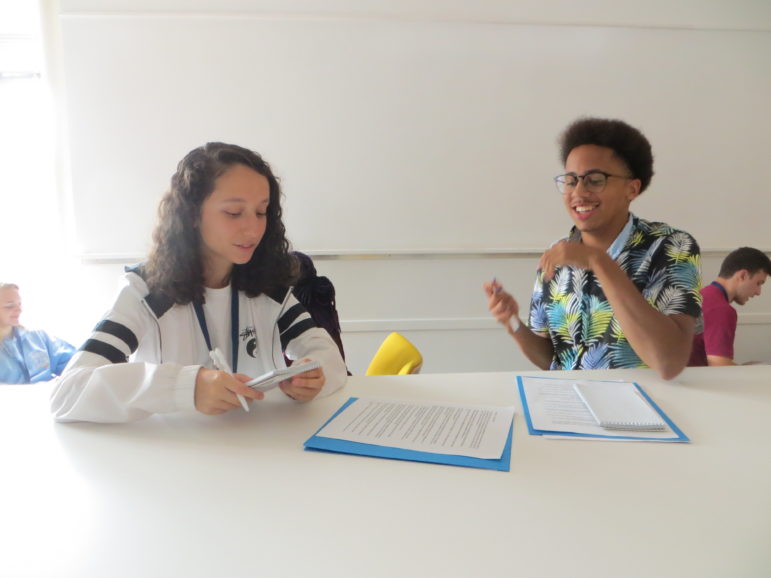Connecticut’s governor quickly weighed in with a strongly worded statement on July 16 when two children who were separated from their families at the U.S- Mexico border because they were all undocumented were reunited with their parents.
“It should not take a lawsuit to convince President Trump to reunite the families his administration heartlessly ripped apart—nor should it take public intervention from governors, United States senators, and members of Congress,” Gov. Dannel P. Malloy said in a statement.
The children were a 9-year-old boy from Honduras who crossed the U.S.-Mexico border in June to escape gun violence and a 14-year-old girl from El Salvador who crossed the border in May with her mother after the girl’s stepfather was murdered, according to the Hartford Courant.

Herta Sufka interviews Charles Mabry.
According to the emergency lawsuit filed by the Worker and Immigrant Rights Advocacy Clinic at the Yale Law School, “some mental health experts have concluded that the separation is profoundly damaging to the short-term and long-term mental, emotional, and physical health of vulnerable children, who lose their primary caregivers at a time of almost unimaginable stress and fear.”
Malloy said that Trump’s zero-tolerance policy is nothing short of child abuse and has “caused unimaginable trauma.”
“While it is good news that these children will be reunited with their parents today, they never should have been separated in the first place,” Malloy said.
In an interview, Kathleen McWilliams, a Courant reporter who has been covering this case, said she would like more people to understand about immigration.
“Immigration is a topic I think is very important for people to understand today and I wanted to write stories about the people actually affected by the new immigration policies implemented in our country,” McWilliams said.
McWilliams, a graduate of the UConn Journalism Department, said UConn prepared her well to cover big issues. She said her investigative reporting class taught her how to use databases like PACER, which is a website that has federal court cases, or the Connecticut Judicial Department website to search court records, which was crucial as she wrote about the two children.
“I don’t struggle at all to keep my personal opinions out of my news coverage—even though I am the daughter of an immigrant who came to the U.S. in 2000,” she said. “I’m not a very opinionated person by nature and I have always liked gathering facts and assessing the situation before forming an opinion.”
McWilliams said those attributes have served her well as a journalist. “I see my role as a journalist to be the person who conveys facts to the public and arms them with the tools to make their own opinions,” she said.
Herta Sufka is a senior at John F. Kennedy High School in Waterbury.